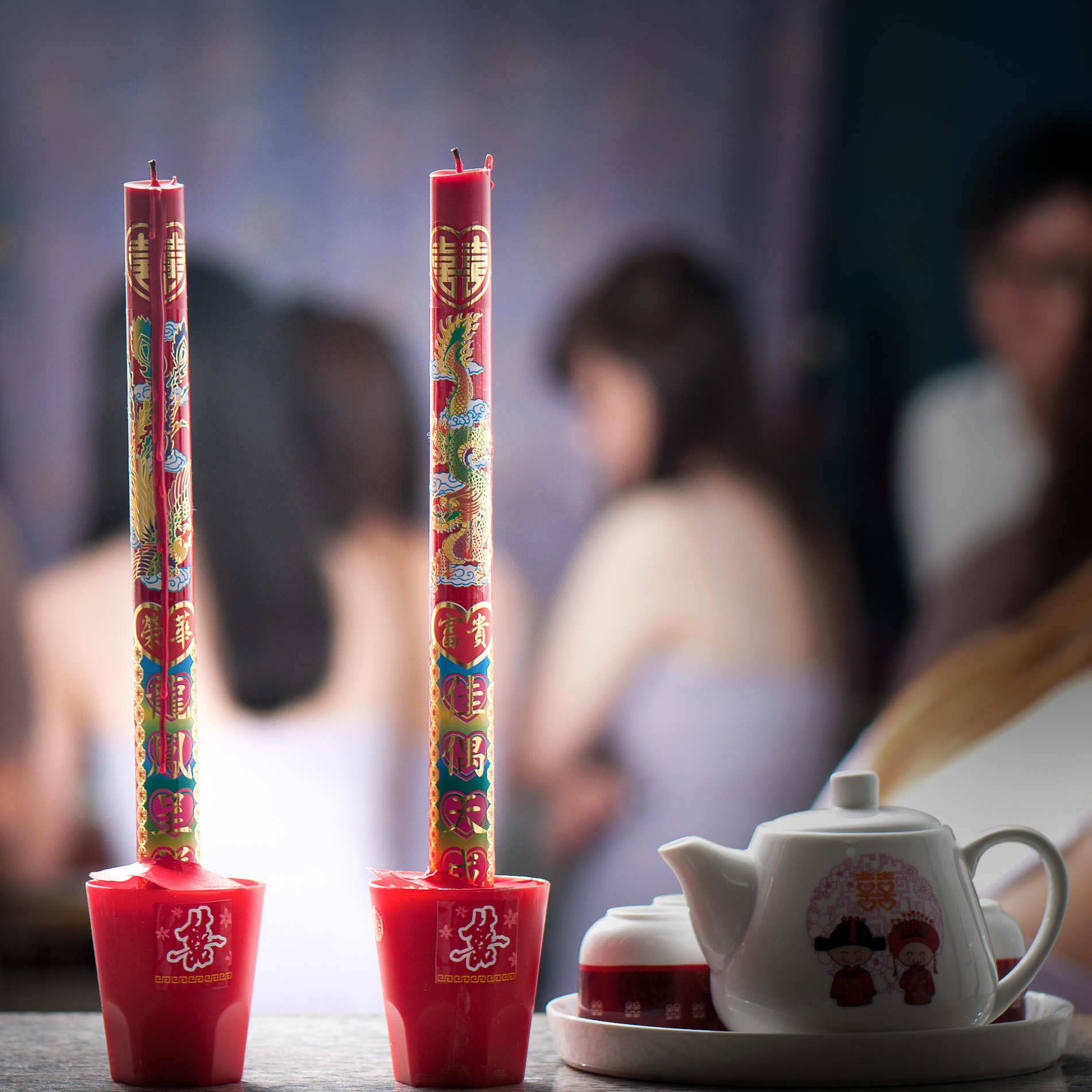Chinese Wedding Customs
Pre-Wedding Procedures
Present wedding customs have been much simplified than before, but some of these practices still remained relevant. To-be-wed couples that follows traditional Chinese custom will follow a series of procedures before the wedding, and on the big day.

Betrothal Gifts
What:
In Chinese culture, Guo Da Li (过大礼) is a significant event for the couples’ family. The groom’s family express sincerity through the presentation of wedding gifts to the bride’s family. On the other hand, the brides’ family will return gifts, known as Hui Li(回礼).
When:
Generally, the betrothal gifts are delivered to the bride’s family two weeks to three weeks prior to wedding day on a chosen auspicious day.
How:
The necessary items and gifts would vary depending on the dialect group of the groom’s family. A more detailed guide can be found here – (read more)
Return Gifts
In reciprocation of the groom’s family generosity and showing their acceptance of the marriage, the bride’s family will return the good fortune by returning, Hui Li (回礼), a portion of the gifts. The returning of betrothal gifts are often done on the same day after sending of betrothal gifts.


Bride’s Dowry
The bride’s parents may include the bride’s dowry (嫁妝) along with the reciprocal gifts on the day of betrothal. It represents the best blessings that the parents have for their daughter. All these dowry items should be brought to the Groom’s family and displayed inside the couple’s bridal room 新房 during their wedding day.
Bed Setting
What:
On a separate day from the Betrothal Gift, Bed Setting is an important process for every Chinese Customary Wedding.
Why:
This is to represent a blessing to have a complete family in harmony (圆满与和睦). For some people, it is also represent a blessing to have many offsprings.
When:
In general, it should be conducted on an auspicious date close to your wedding day between 3 days to 1 week before the wedding.


Hair Combing
Hair Combing Ceremony is one of the common traditions in Chinese weddings today.
What: It represents the transition of the groom and bride from their childhood to adulthood.
When: It takes place at the house of the bride and groom during the night before their wedding, or early in the morning before the groom and bride meet on their wedding day.
How: Auspicious blessings are recited with each stroke so as to bless the marriage and their children’s future.
